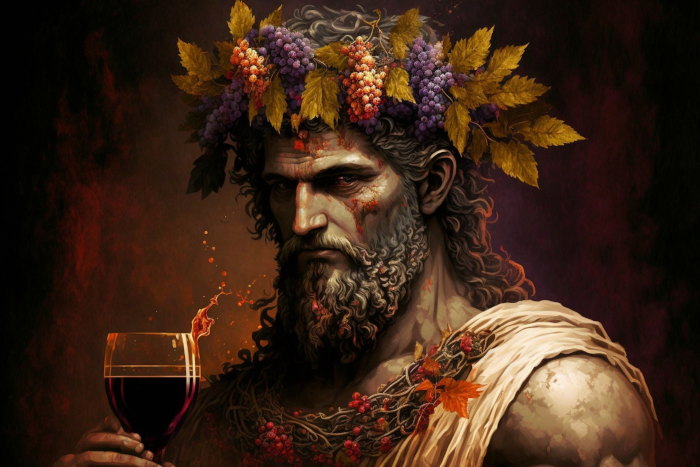Wine culture: Different cultures & celebrations
Explore the fascinating cultures and celebrations that have evolved around the world with wine.

Wine culture is almost as old as civilisation. Throughout the history of mankind, we can find references to wine as a religious and status symbol and as a fundamental element in rites, ceremonies and celebrations, both civil and sacred, public and private.
Moreover, wine culture is universal and has been linked to the functioning of societies for millennia. Let us travel through history to learn more about the importance of wine as a factor of social and cultural cohesion.
Ancient origins: Mesopotamia
Although there are indications that nomadic peoples were already making a proto-wine from wild grapes, viticulture developed when humans settled down and became sedentary. People began to use agriculture as a means of obtaining food. Man's hand domesticated Vitis silvestris into Vitis vinifera.
The people of Mesopotamia, inventors of cuneiform writing, left written records of the presence and knowledge of wine in their cities.
In principle, the wine that reached Mesopotamia was imported from regions such as present-day Armenia, where the oldest archaeological remains have been found that testify to the production of wine in the area.
Some cuneiform texts suggest that Sumerian kings imported wines from Iran. Imports were carried out by river transport and caravans of traders.
The first vineyards were established in Assyria, which we could call industrial, to supply the noble classes of Mesopotamia and also for export.
The wine was considered a refined drink, destined for kings, priests, merchants and the ruling oligarchies and economic elites.
In Mesopotamia, wine also had a religious component and was seen as a symbol of fertility. Mesopotamian religion was polytheistic and had several deities representing fertility. One of these is Geshtinanna, a Sumerian goddess whose name means 'the vine of heaven'.
Greco-Roman influence
Ancient Greece and Rome had a deep tradition and appreciation of wine. This is reflected in their myths, religion, art, literature and social customs.
In ancient Greece, wine was considered a gift from the gods with its consequent divine properties. It was an important element in religious festivities and banquets.
The Greeks also had a sophisticated liturgy for tasting and sampling wine. Ancient vessels have been found with inscriptions describing its aroma and taste.
Greek philosophy and poetry also make many references to wine and its effects on society and the human condition. Of course, the wine had its own god, Dionysus.

In the Roman world, wine was an essential element of everyday life and a symbol of wealth and status. The Romans cultivated vineyards and produced wine in large quantities, and wine was used both for personal consumption and trade.
The Romans and their broad commercial vision succeeded in developing an optimised transport system for the wine trade. These were the "amphorae", large earthenware jars that allowed both the transport and storage of large quantities of the precious beverage. This system had a significant impact on the production and trade of wine in antiquity and is still in use today.
Bacchus is the Roman god of wine, who gave his knowledge of vine cultivation and winemaking to Icarius, considered the first Roman winemaker.
Wine and religion
The relationship between wine and religion has been a constant throughout history. In many ancient religions, including Egyptian, Greek and Roman, wine was considered a gift from the gods and was used in religious rites.
In Christianity, wine plays a central role in the liturgy as a symbol of the blood of Christ in the Eucharist. Biblical references to wine are numerous in both the New and Old Testaments and reflect the benefits of wine-growing areas such as Cana.
In Judaism, kosher wine is also present in religious festivities such as the Sabbath meal where it symbolises the remembrance of the divine manna.

The relationship between wine and religion is a complex subject that demonstrates how drink has been a key element in the life and culture of many societies throughout history.
Regional celebrations
Celebrations around wine have been celebrated throughout history and continue to be perpetuated.
One of the most important of these, which are repeated throughout the world, especially in the Mediterranean region, are the festivities associated with the grape harvest. These festivities mark the beginning and end of the grape harvest and wine production.
Each region has its own tradition around wine production and consumption, and many of these festivals are an important way of celebrating local culture and wine tradition.
Modern world: wine today
Today, wine continues to be a social, cultural, artistic and gastronomic driving force. Its production and consumption have grown significantly, with new producing regions emerging and the demand for high-quality wines increasing.
There has also been a boom in organic and sustainable wines, and a growing concern for quality and provenance in a more conscious society.
Wine culture has been with us for millennia and today it is more alive than ever. It is still present as a religious symbol, a symbol of celebration and a unifying element of traditions and customs, without forgetting its importance as an economic driving force in many regions of the world.